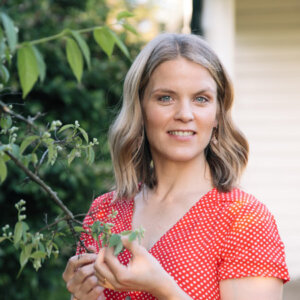Insulin-like growth factor 1, is a hormone that causes growth. This growth is positive thing in the growing bones and bodies of our small children. As we age and our growing slows, levels of IGF-1 naturally go down. This is a protective mechanism. Many research studies have documented the strong correlations between high levels of IGF-1 and diseases such as cancer and diabetes. IGF-1 causes rapid proliferation of cells and this increases the chance of genetic mutations and ultimately cancer. (1)
People who are taller (acromegaly) commonly have higher levels of IGF-1 and increased rates of colon, breast and prostate cancers. The reverse is also true for a few rare individuals who have a genetic defect resulting in no or little IGF-1 productions; these individuals rarely every have cancer or diabetes. (1)
Women with high IGF-1 compared to low IGF-1 levels have also shown to have a greater risk of developing breast cancer. This applies to pre and postmenopausal women. (2)
By now you may be wondering, how can I reduce my IGF-1 levels to decrease the risk of developing cancer and slow the aging process (IGF-1 also causes increased “aging”) (3)?
Low calorie diets can reduce IGF-1, how safe and sustainable that option is, is still yet to be determined. The greatest impact however, can be made by reducing consumption of animal products. (4) High levels of animal proteins in the diet, are correlated to cancer development and are associated with elevated IGF-1 levels. This elevated IGF-1 may be why, consumption animal products has shown increased risk in developing cancer and diabetes (5).
How can you reduce your intake of animal proteins?
Consider switching to plant based proteins. Foods such as beans, nuts/seeds, and whole grains are a wonderful source of cancer-fighting proteins. Plus these foods are low in fat and high in fiber and cancer fighting nutrients. As a doctor that is passionate about prevention, eating a plant-based diet makes so much sense. If you have any questions about the benefits of plant-based diets or just wondering how to make it work, contact us at Balanced Natural Health.
What are you eating for prevention?
1. http://news.harvard.edu/gazette/1999/04.22/igf1.story.html.
2. http://ww5.komen.org/BreastCancer/Table21IGF-1andbreastcancerrisk.html Iso H, Maruyama K, Ikehara S, Yamagishi K, Tama Koshi A. Cellular growth factors in relation to mortality from cardiovascular disease in middle-aged Japanese: the JACC study. Atherosclerosis. 2012;224(1):154-160.
3. Iso H, Maruyama K, Ikehara S, Yamagishi K, Tama Koshi A. Cellular growth factors in relation to mortality from cardiovascular disease in middle-aged Japanese: the JACC study. Atherosclerosis. 2012;224(1):154-160.
4. Fontana L, Weiss EP, Villareal DT, Klein S, Holloszy JO. Long-term effects of calorie or protein restriction on serum IGF-1 and IGFBP-3 concentration in humans. Aging Cell. 2008;7(5):681-687
5. Levine ME, Suarez JA, Brandhorst S, et al. Low protein intake is associated with a major reduction in IGF-1, cancer, and overall mortality in the 65 and younger but not older population. Cell Metab. 2014;19(3):407-417.
6. http://naturalmedicinejournal.com/journal/2014-09/lower-insulin-growth-factor-1-and-live-longer




